By now, it has probably become a cliché to point out that we all remember exactly where we were on 9/11, when we saw that plane hit. It is no less true, however. It is even so profoundly true that, cliché or not, it was and is the reality for all of us with a living memory of the event. We know where we were, what we felt, all living in our heads in slow motion, and it will likely be this way for the rest of our lives.
My story is not profound. It isn’t intense or personally related to a lost one that day, or thereafter. I was just some kid, starting her freshman year of high school, somewhere in the middle-of-nowhere Midwest. My friend and I were sitting in homeroom, waiting for the morning announcement and the 10 minutes of teenage-centered news that ran every day. The teachers went quiet first, and turned on the TV. It was like a ripple effect, as the room, from nearest to furthest, began to see what was unfolding live on-air. A plane had struck a building in New York, and for most of us, that was the limit of our understanding. We were watching the building on fire, similar to how one might rubberneck at a car accident. I saw my friend had gone pale, though, and he turned to me.
“My sister is there”, he said.
I did not know his sister, and I didn’t even know my friend that well. We had only met a few weeks earlier, at the beginning of the semester, but at that moment, it became slightly more real. More personal. This event nearly a thousand miles away had already begun to impact my very small and very rural community. My friend left soon after, his family picking him up until they heard news (the sister was okay).
We moved on to first period. I had biology, and this teacher was already rather annoyed that the news cycle was taking up so much time and attention. It was an understandable attitude – if it had been an accident, a tragedy, should we really be letting kids watch all this for hours on end? He entered the room in a huff, turning off the TV, and explaining to us we would still be having class. Exactly three minutes later, another teacher ran into the room and whispered to him. He, just like my friend, went pale, and for the first time since I’d known him, went deathly quiet.
He turned the television back on. A second plane had hit.
At the time, none of us kids understood what was happening except for one big realization – this was not an accident. Many of us did not understand the concept of terrorism, what it was, or who might be perpetrating it, especially in a random attack against American civilians. I don’t know whether it was the fault of our education, our insular existence, or our geographical isolation, but these harsh realities of the world were something taught to me by CNN and FOX that day, not by any educator.
Suddenly the Pentagon was on fire, reports of a bomb or possibly, a plane. My biology teacher spoke no more that day, and we watched as the news reported that all flights were grounded. Places were being evacuated. Our school, like almost every single one across the country, was attempting to implement their plans to close and get kids home.
The halls were silent, save for the whispering and some tears, a palpable confusion and fear among the students. Parents had begun showing up to pick up their children. Teachers were silent, more grief than confusion in their faces. Fear. Concern. We shuttled off to second period.
My music instructor was a bit of a history buff. He kept up more with current affairs, geopolitics, and general history than most. The TV was on when we entered. I sat with my best friends, and we watched the towers burn, the clearly panicked news broadcasters giving their best attempt at calm. We were quiet. That is, until the first tower collapsed. We gasped, held each other, and sobbed. Our teacher watched us. He knew that this moment would be seared in our memories for the rest of our lives and that seemed to pain him greatly.
Soon, we all went home. I watched the news coverage the rest of the day and the speech by President Bush that night.
We all remember where we were. We all likely have some image of that day that sticks with us more than most. For some, it’s the images of New Yorkers coming out of the ash, or the screaming and dust cloud after the first tower collapsed. For some, it’s what they saw firsthand that day, not on the news, but in their work evacuating the Pentagon or the other locations, recovering bodies for weeks and months.
9:41:15 The photo The Falling Man is taken. pic.twitter.com/LYcDQAREJs
— Live Tweets from September 11 2001 (@tweets_from_911) September 11, 2021
For me, it was and always will be when I saw the people falling from the towers.
Those individuals who, for whatever reason, be it need, an accident, or to take their fate – their death – into their own hands, jumped or fell from the tower. Away from the smoke and fire and heat, and into the clear air, the deafening rush of wind as they fell, and those last seconds of their silent, internal last moments. Those images have never left my mind.
Now I know I will never forget the 20th anniversary of September 11th either, because I have seen those very images replicated in the desperation of those we have abandoned in Afghanistan.
The horror of our mishandling of the Afghanistan exit is something that has been covered by many, and will continue to be covered by those who have the courage and honesty to do so. How we left, whom we left, and what we have left them to – a fate those same people fought for twenty years with our help and our encouragement – is something we should all have burned into our minds.
We left them to a fate that more 60,000 Afghans have died to prevent, that more are still fighting in the Panjshir Valley. A fate that has in the last weeks taken the lives of women and men who dared to have hope and ally themselves with those of us who provided them support for that hope. A fate that will enslave the women and children, that has emboldened the evils in this world, that has permanently broken the reliability and reputation of the US, and therefore, of any group that allies itself with us and the hope we once stood for. That hope that we, 20 years after 9/11, have shown the world to be false. To be empty. To be a pretty lie that those we – WE – have put at the head of our military and government will claim to profess, right up until it becomes an inconvenience.
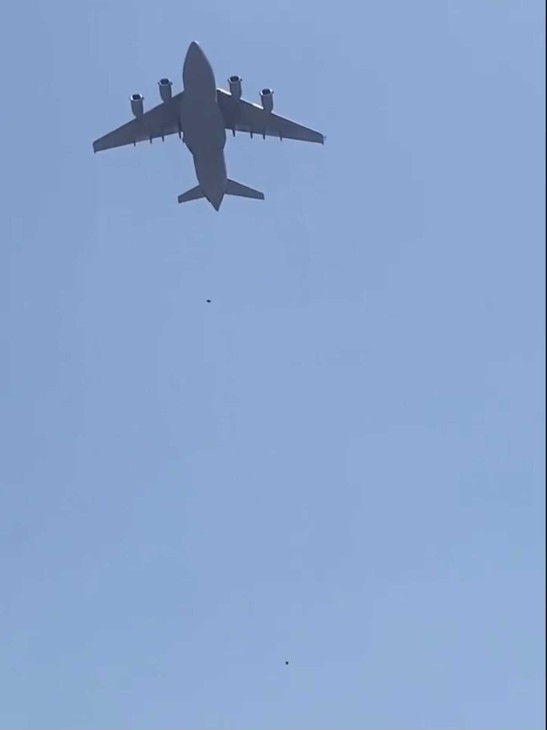
I woke up a few weeks ago and the first thing I saw was the image of an Afghan man clinging to the side of a US C-17 attempting — against all odds and reason and laws of physics — to escape the encroaching Taliban. I saw him fall. I saw the images of two others fall. I heard the thud from the videos.
I lay in bed, horrified. And suddenly I was 14 again. I saw someone take control of their life by choosing their death.
The first time was when someone chose to do so to escape a fate that was forced on them by the actions of bad men wishing to do harm on innocent people. The second time, this time, it was our fault.
The Afghan man, who I’d later find out was 17-year-old Zaki Anwari, was choosing the slim – really, closer to non-existent – hope of survival on the fuselage of that plane overfalling into the hands of the Taliban – the diabolical choice the same evil men had presented to the jumpers of 9/11, 20 years prior. That was a choice he never should have had to make – and it was one that was entirely within the US’s ability to prevent. Had we done our jobs, had we been the America I remember us being 20 years ago, the America that did not leave anyone behind, this would have never occurred. We are no longer that America, and we no longer embody the centuries-old idea of a consistent American ethos.
I know most people think we can never be that America again. I don’t agree, and I can’t agree, otherwise, I’d be giving up and becoming the thing I despise, that hollow shell of what an American ought to be.
As a people, at our core, I truly believe we haven’t changed. This isn’t some youthful idealism, the same I had for many years after 9/11, even as a liberal. This is tempered with reality, with the knowledge of human nature, and that some people will act for their own interests above others. But I still know many, even most, Americans would run head-first into the fire to save someone. Our first responders, our military, and even just the actions of ordinary Americans every day speak to this. The small, quiet acts of heroism and sacrifice do not get the same airtime as the anger and vitriol of the divisive rhetoric that engulfs us daily. They exist, they’re out there, and they still define who we are.
At least, they can define who we are if we choose to let them and if we choose to look past the partisanship that has been thrust upon us more forcefully in the last few years than ever before. But to do that we have to do one thing.
We have to feel shame. We have to be humble and humiliated enough by what has become of Afghanistan, how we have handed it on a silver platter to the same people who made today the solemn memorial it is. That we have given it back to the same evil men who will do us harm given the chance, and who will most certainly do the Afghan people harm. That we – through our fault and our fault alone – have left our allies, Afghans and other nationalities, along with our own American citizens, to a fate of hopelessness, torture, pain, evil, and most likely death. That we are the cause for the biggest Taliban victory since 9/11, and we have accomplished this all in a few months. That we sit here and remember those lives lost on 9/11, in the military campaigns since, of all those people who chose hope and sacrifice – living and deceased – while giving those same evils these people chose to fight against a world stage. It’s farcical.
It’s shameful, and until we realize that as a nation, until we embrace that it is OUR shame, we won’t be the America we were, that we can be, again.
The grief we all felt on 9/11 turned into a brief moment of national unity: anger, yes, but also a sense of hope, of a will to fight that transcended our individual needs, and within which we sought to do what was right. That was an America that would be ashamed of what we are today. The 14-year-old who watched men and women fall from the towers, to a death of their choosing, was disappointed and deeply ashamed to wake up 20 years later to a world where America was the cause of another young life, a teenager, choosing that same fate for himself.
I will not forget those images. I will never forget that shame. I will embrace that shame, embed this memory and these images into my very soul, and hope that it will make me better and instill in me a renewed desire for hope and to do what is right.
And I hope you, too, will embrace this shame with me — for all of our sakes.
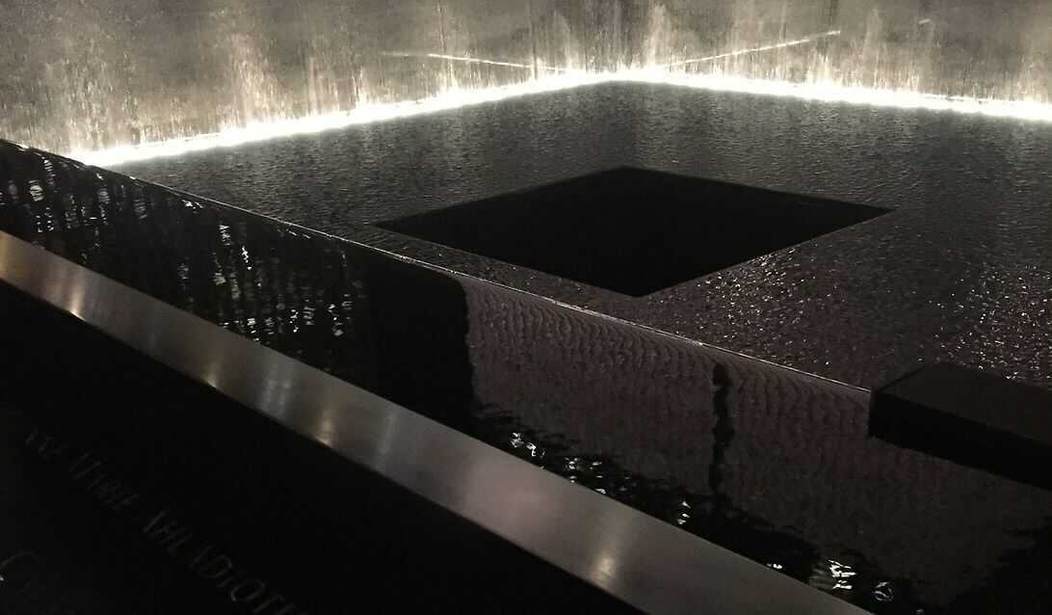










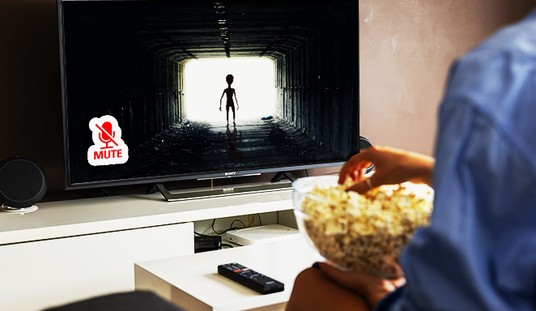
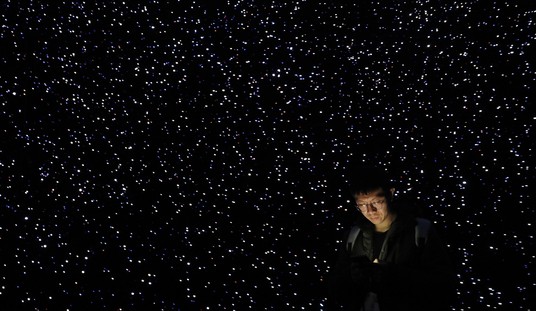
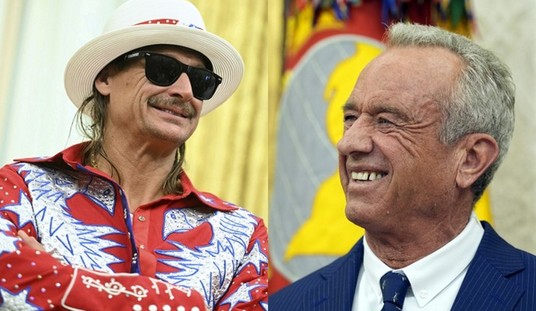
Join the conversation as a VIP Member